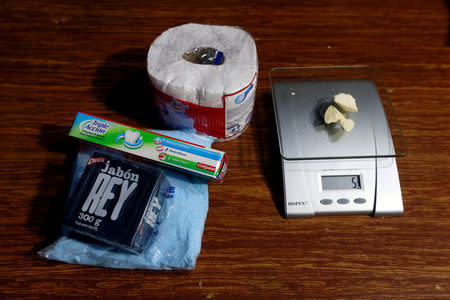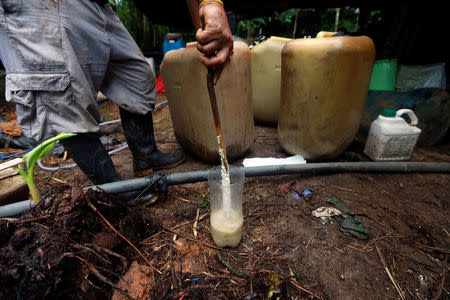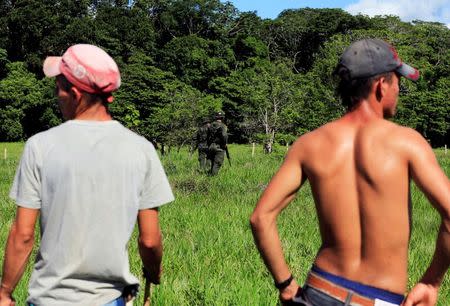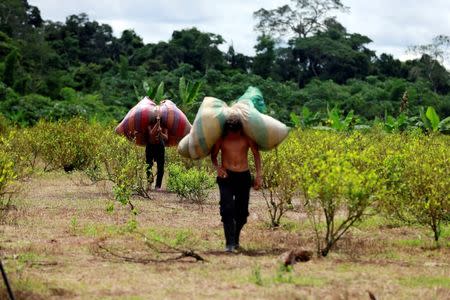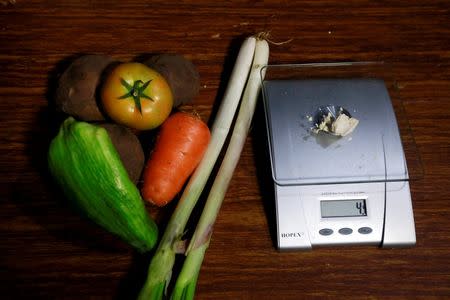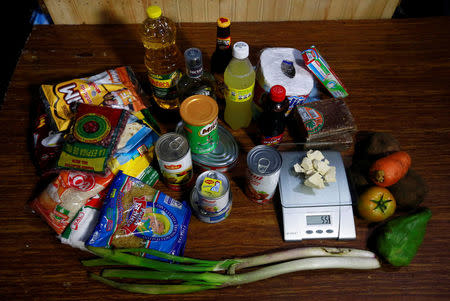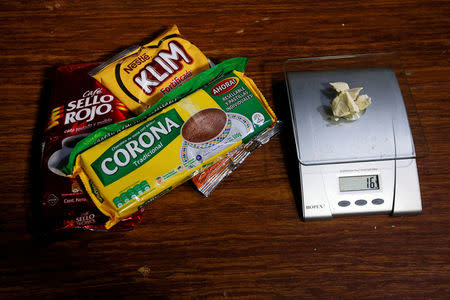Coca farmers face uncertain future as Colombia nears peace deal
By Melissa Fares (Reuters) - As Colombia nears a historic peace deal with the rebels of the Revolutionary Armed Forces of Colombia (FARC), the nation's authorities are struggling to tame an increase in farming of coca, the raw material used to make cocaine. Leftist FARC rebels agreed in 2014 to break ties with drug traffickers, help eradicate illegal crops like coca and help fight the production of narcotics. But authorities have accused the rebels of instead stoking resistance to the eradication of illicit coca crops and keeping up their ties to drug trafficking. The latest United Nations figures showed a 44 percent increase in coca cultivations in 2014 to 69,000 hectares (170,503 acres) in the South American nation. The U.S. government estimates there were 159,000 hectares in 2015. Many farmers, who according to the U.N. Office of Drugs and Crime earn an average of $1,000 a year, are well aware of the harmful uses of their crops but say they have no other choice. "The government does not want to resolve the huge problem we have here," said Orlando Castilla, president of the Farmers Association in the Guaviare region. "We appear to be rich, millionaires on a national and international level, but we have nothing to live off." Ferin Oviedo, a representative of the Guayabero Regional Farmers' Association, said coca, unlike the government, helped provide the local residents with "a way of sustaining their families in every sense." Even Colombian Defence Minister Luis Carlos Villegas, who has deployed some 7,000 soldiers to eradicate coca in the country, admits that the crop will probably increase until 2018. That is, he added, "if things go well." (Reporting by Melissa Fares; Editing by Lisa Von Ahn)

